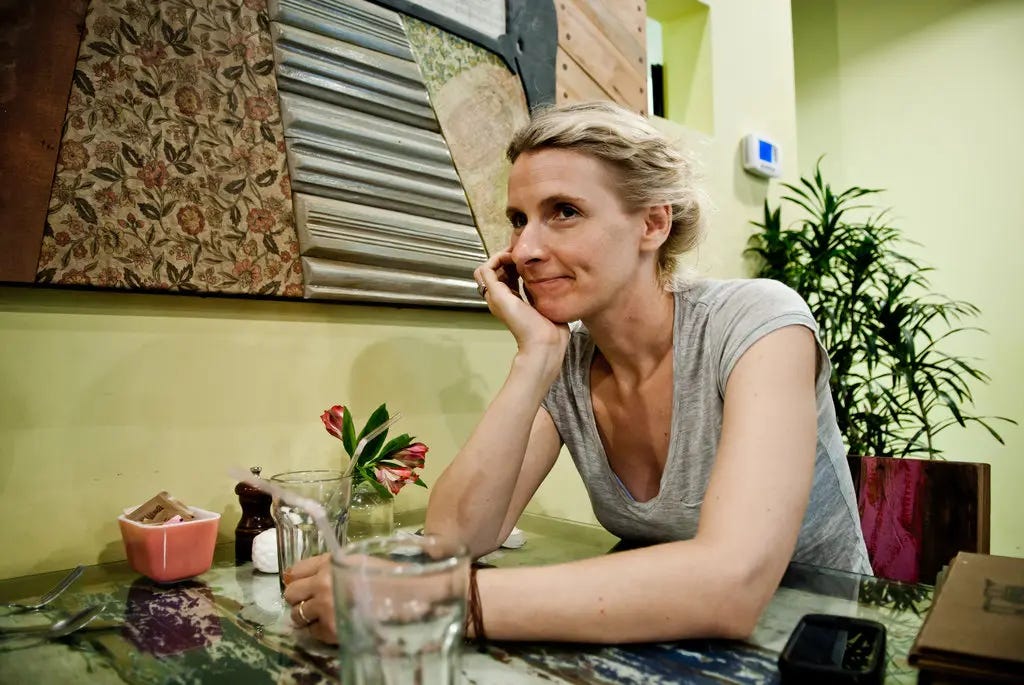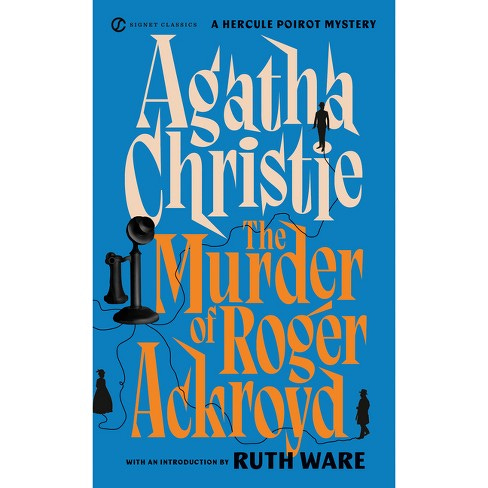Agatha Christie, Life Lesson #4. Going Pro: How Adversity and Dire Financial Need Turned Agatha from Dilettante into Steely Professional
The one in which I start out talking about myself, and not just about our dear Agatha but don't worry, she shows up midway through

When it comes to money, there are at least two kinds of writers. One kind feels that relying on writing to make money is perilous to creativity.
As Elizabeth Gilbert said in a Facebook post, “I adore Creativity. I love her. I have devoted my life to her, because she brings me joy. But I do not suggest relying upon her to pay the oil bill. She is not very reliable. Creativity has no idea what the words ‘oil bill’ even mean. Creativity doesn't give a damn about your auto insurance. She just wants to dance with you, and then sometimes dance away — on her own schedule, on her own strange rhythms.”
Ask Liz if you should quit your day job and she’ll say, “Absolutely not.”
Another kind of writer—hello, this is me!—loves the challenge of making a living from writing, even if that means alternating periods of feast and famine. I don’t just accept this risky game. I am energized by it. My productivity and identity rely on it.
Needing to pay the bills is what helped me master the basics of nonfiction freelancing as a young, broke woman, starting at the age of 17. It helped me learn to love deadlines, submit more, learn faster, take bigger creative risks, and be less precious about my fiction. If I’d had a chance to win the lottery at the age of 21 so that I could self-fund the next decades of my writing life, I would have said “No thank you.”1 I wanted to win a more interesting lottery—the literary lottery.
When Liz Gilbert was fifteen, she made a promise to her writing life. “I said to writing: ‘I will never ask you to provide for me financially; I will always provide for YOU.’"
When I was fifteen, I didn’t know I wanted to be a writer. But by the time I was eighteen, I wrote down a description of my ideal freelancer’s working day (including fun, sexy lunch each day with a perfect boyfriend, not yet located) and what I planned my annual salary to be.2 If I couldn’t earn that within a decade, I told myself I’d move on to something else.
Every year I’ve made that amount, I’ve felt an exhilarating sense of accomplishment. When I was in my early twenties, writing travel guidebooks, nothing gave me more pleasure each January and July than opening the mailbox and finding a royalty check that matched the rent due, almost to the cent. A few years later, I learned to fake the confidence needed for accepting journalistic assignments in order to buy my babies their diapers and buy myself the travel I needed in order to research my first books. (Of course I’ll take those assignments to interview cloistered nuns in Spanish and co-pilot an ultralight even if I nearly crash it. Just so long as you send the check in two weeks!)
In my mid-thirties, I managed to earn my goal salary multiplied by twenty, allowing me to buy a house and support my husband for several years so that he could cut back his hours and take on more of the parenting load, allowing me to write the next couple of books. (Which earned relatively little—that’s how publishing frequently works!—but those later books brought me as much joy as the first.)
I’m tickled by what Liz G says about creativity not knowing what the oil bill means, and I heartily endorse her book, Big Magic, in which the money-earning issue is addressed in greater depth.

However, my creativity does know what the “oil bill” means, and it even knows what the “oil company” means. Coincidentally, only months before my debut novel sold at auction, a friend and her husband staged an intervention, in which they tried to convince my husband and me that I really needed to set aside my writerly ambitions for now and take a low-level admin job at a local oil company, because it was the responsible thing to do.3 I shit you not.
Ask me if you should quit your day job and I’ll say, “Crunch the numbers, decide how much financial uncertainty you can handle, and if it feels right, make the leap. It’s not like you’ll be blacklisted from more stable, boring jobs in the future.4 Or think about it this way: if you got a life-threatening disease in five or ten years, which choice will you wish you had made?”5
Now, let’s discuss a third type of writer, because Agatha has been waiting in the wings, tapping her sensible shoe and rolling her eyes.
Agatha wasn’t against making money, but she hadn’t really thought about it, either, because as we discussed in a recent post, she wrote her first detective novel on a dare. She didn’t expect to write another.
She paid little attention to the contract she signed with her first publisher, Bodley Head, unconcerned that they would pay her no royalties for the first 2000 copies sold. She didn’t even notice the clause about being bound to Bodley Head for her next five books. Even if she’d spotted that clause, she wouldn’t have cared. The Mysterious Affair at Styles (1920) was an “isolated experiment” for Agatha. They could wait as long as they liked for those “next five books.” Ha!
You might think Agatha Christie was flighty or indifferent because her family was wealthy. Not so. During her childhood, the family’s assets dwindled. The death of Agatha’s father made Agatha’s mother’s finances even more precarious. By the time Agatha was a debut author at 30, her mother faced losing the family house called “Ashfield.” Agatha was distraught.
It was Archie, Agatha’s husband, who suggested that Agatha should “do something about it.”
“What do you mean, do something about it?
“Well, you could write another book.”
Agatha’s first book had sold 2,000 copies (hmmm…the exact cutoff for earning no royalties?). It did earn 25 pounds in serialization rights. Agatha wasn’t too optimistic this was the plan for saving Ashfield! But Archie wisely reassured Agatha that she should expect to make a little more with each subsequent book.
Taking Archie’s advice, Agatha wrote a second novel, The Secret Adversary, an espionage thriller—which she said was much easier to write than a detective novel, by the way. The publisher didn’t particularly like it since it wasn’t a detective novel, but they accepted it, and it “made a little,” according to Agatha.
She wrote a third novel, Murder on the Links, using Hercule Poirot and his “Watson,” Captain Hastings, as her lead investigators again, never realizing that she was binding herself to those characters—a terrible mistake, she admitted. She was already tired of them both. Ah well!
Next, Archie took a financial advisor job that would allow him and Agatha to travel round-the-world as part of a British Empire Mission, knowing it might land them back home at the end, broke. And so it did. But as Agatha wrote, “We had never been people who played safe.”
In 1923, it was once again hard for Archie to find adequate work that he enjoyed—and almost impossible for women, who weren’t wanted for many of the jobs they’d performed during the first World War, which is why Agatha didn’t bother pounding the pavement for a conventional job. Instead she “settled down and started to write another book,” using a plot she’d sketched out in her mind while traveling in South Africa.
Agatha’s fourth book was written despite constant interruptions. By this time, Agatha had hired a nurse they called “Cuckoo” to help care for her young daughter Rosalind while Agatha wrote. But Cuckoo talked endlessly, often standing outside Agatha’s office door, keeping up “a kind of soliloquy, ostensibly addressed to Rosalind,” pretending to talk to the toddler about whether her mother needed a certain dress washed, or why they couldn’t afford a new pram so Cuckoo didn’t have to suffer the embarrassment of pushing their second-hand pram in public.
The fourth book, later titled The Man in the Brown Suit, was finished “somehow or other, despite the difficulties of Cuckoo’s obbligato outside the door.”
Around this time, the UK Income Tax authority started asking Agatha about her earnings. She didn’t report money earned from her books or keep records of any kind. She simply cashed the small checks. She wasn’t a writer, after all. “I was astonished,” Agatha wrote in her autobiography. “They said they thought by now I really was an established author, even though as yet I might not have made much from my writing.”
And now something entirely unexpected happened. Agatha’s fourth novel made some real money, despite her crummy Bodley Head contract. A publication offered 500 pounds—about $50,000 USD in today’s dollars—in the form of serialization rights.
Agatha and Archie “could hardly believe it.” Her sister “could hardly believe it.” The only person completely unsurprised was Agatha’s mother, the person who first challenged Agatha to write a short story, years earlier. (Awww. Good job believing in your daughter, Mrs. Miller!)
Because Agatha also turned in a supernatural novel that Bodley Head rejected, she was now free of the five-book contract. She found a better publisher and an agent who knew how to negotiate better deals. She finally felt she could make money as a writer. Yet she still didn’t consider herself a professional in every sense. But that final transformation would come soon.
“It always seems to be the pattern of my life that all the bad things and all the good things come together.”
The next several years contained some of the best and worst moments of Agatha Christie’s long life. Her daughter Rosalind was doing well, enjoying school. The family could finally afford to move from the city back out to the country—Agatha’s dream—even if she was disappointed that the house they chose was more suburban than truly country-ish, surrounded by a golf course. (Reader—note that clue! Beware the golf course!)
During this time, Agatha wrote one of her most revered books, The Murder of Roger Akroyd (1926), still considered one of the most influential crime fiction classics due to its use of an unreliable narrator.

The halcyon days, as Agatha called them, couldn’t last forever.
Next came the annus (in Agatha’s case, anni) horribilus (horribili?) as Queen Elizabeth would call it.
Agatha’s mother died in April 1926. Agatha took on the enormous task of emptying Ashfield, the family house, which had become a series of storerooms, filled with at least two generations’ treasures and clutter. With Archie away (he never cared for illness or death), Agatha spent long days sorting, her loneliness intensifying. She broke down sobbing when her car wouldn’t start. She fell into a depression so deep that one day, preparing to sign a check, she found she couldn’t remember her own name.
When Archie visited, Agatha hoped for restorative companionship. Instead, Archie acted like “a stranger.” (Do you remember the golf course from five paragraphs back?)
Finally, he confessed. He’d been having an affair with a golf partner named Nancy. When Archie left again for a weekend away, without Agatha, she went into a fugue state, devastated by all she’d lost and—she would later claim—on the verge of suicide.
As readers of her autobiography will know, Agatha chose not to explain the next, most infamous event of her life, when she disappeared for just over ten days, hiding away at a health resort as police combed the countryside, concerned she had drowned or been murdered. We’ll skip over the details of that Gone Girl-like real-life incident, covered in nearly every Agatha Christie writeup, in favor of what followed, as Agatha slowly pulled herself up from the abyss.
Despite a long separation and Agatha’s willingness to forgive, Archie was adamant he must be with Nancy. Archie planned to sell their house, called Styles, but it would take time.
“I needed the money badly now,” Agatha wrote, “because I was in serious trouble again. Ever since my mother’s death I had been unable to write a word.”
Another book was due. Agatha couldn’t afford to stray from her annual publishing schedule. Her brother-in-law helped her pull some short stories together, as a stopgap, stitching them into a book called The Big Four. But she still needed to get her mind working in order to write the next proper novel.
With Rosalind and a secretary nicknamed Carlo, she went away to the Canary Islands, where she nursed herself into better health and managed to write part of The Mystery of the Blue Train (1928), published the same year her divorce was finalized. Some of that book was dictated to her secretary, while Agatha’s daughter looked on gloomily, counting the minutes until her mother would be finished with her work, making Agatha feel ever more self-conscious.
“Rosalind’s eye upon me had the effect of a Medusa. I felt more strongly than ever that everything I was saying was idiotic. (Most of it was, too.) Really, how the book ever came to be written, I’ll never know!”
She’d lost the joy of writing. The plot was conventional, partly adapted from her other stories. The characters refused to come alive.
Yet Agatha was driven by the desire and the necessity to write another book that would make money.
“That was the moment when I changed from an amateur to a professional. I assumed the burden of a profession, which is to write even when you don’t want to, don’t much like what you are writing, and aren’t writing particularly well.”
She always hated The Mystery of the Blue Train, but as she notes almost wistfully in her autobiography, it ended up selling as well as the others6.
Exotic adventures onboard the Orient Express and a romantic love affair with a dashing archaeologist awaited Agatha just around the corner. But the days she struggled and managed to push through her writer’s block and write yet another novel between 1927 and 1928 together formed a key turning point in her life. Until then, many people had believed in her—from her mother to her publisher to the Income Tax authority—but Agatha hadn’t truly believed. Now she did. She could write in good times and appallingly bad ones, for pleasure or for lucre or for both.
For many years she had been Agatha Christie, but as of 1928, broke and frightened of the future ahead of her, she became the Agatha Christie, and she would never doubt herself again.
Let it be known that now that I am in my early fifties and have gotten over my most machista phase, I would absolutely accept lottery winnings of any kind, or any donation, period. Poverty was more fun in my twenties and I no longer consider instant ramen an adequate dinner option.
It has actually become much harder to make money as a writer than it was in my teens and twenties due to changes in magazine and newspaper publishing. I made more per word as a teenager than I usually do now, which is one of many reasons I spend most of my time writing books and less time writing articles, except the ones that make no money at all, like this one! Go figure.
Am I still friends with this person? I’ll let you guess.
Admittedly, the U.S. healthcare system makes taking artistic risks incredibly difficult. I had no health insurance for years, a risk my husband and I chose to take, which I never regretted, even when I had expensive health problems. (See intervention with “friends.”) Five years ago we moved to Canada, where I no longer fear bankruptcy or homelessness should I have the bad luck to contract a common disease.
Honestly, genre factors into this as well. If you want to be a screenwriter, you need to go all in, early, and probably move to L.A. as well; there is no playing it safe. If you can write in multiple genres, and take every assignment that comes your way, earning a living will be easier. If you’re only interested in writing short stories or poetry, Liz’s advice is better than mine.
The exhaustive and charming “All About Agatha” podcast covers every book she wrote and last year featured a final quality ranking of them according to a complex scoring system. Murder on the Blue Train (1928) was ranked 54 of 66, with middling scores (mostly 5 on a 10-point scale) for plot mechanics, credibility, setting/tone, and more. But the point is—she got that book finished and published so she could move on with her life! Two books later, by which point she was happier in every way, she rebounded with Murder at the Vicarage (1930) which was ranked 11.






That oil company intervention was just the universe setting you up for a good opener when you meet Liz Gilbert one day. I LOVED this one. I am only paid by my writing at this point but my long term plan (for whatever a plan is worth) is to work at a library. For the social interaction, structure, and book talk!! (Not to mention a regular paycheck.) But as for now, I feel like that photo of Agatha is staring straight into my soul, saying “quit whining and finish your book.”